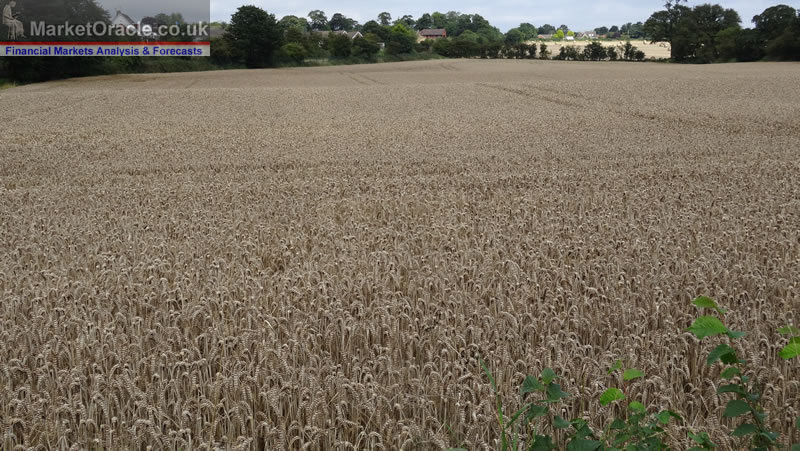How to Invest in The Farming and Agriculture Industries
Commodities / Agricultural Commodities Aug 31, 2018 - 08:57 AM GMTBy: Dylan_Moran
Agriculture is always a solid choice to invest. People always need to eat no matter the current economic outlook. This is why many people consider agricultural investments to be recession proof. The good news is that you don’t actually have to own a farm to invest in them. Here is a look at how to invest in farms, all without having to actually own one.

1. Farm REITs
Investing in a farming-focused real estate investment trust – REIT – is the closest an investor can get to owning a farm without owning one. They basically allow investors to purchase farmland and lease it out to farmers to use. There are several benefits to this; including offering more diversification over owning just one farm. Investors can put their money into several farms in several areas. They also have more liquidity than owning actual farmland, as it’s possible to quickly sell an REIT on through the stock exchange.
2. Equities
Investors are able to invest their money in publicly-traded companies within the farming sector. Invest your money into crop production, supporting industries such as fertilizer, farm equipment producers, and crop distributors, and actual farming equipment. Instead of putting your money into a company that makes the farming equipment, it may be more prudent to simply buy your own and sell/rent it on to farmers. Farming equipment can be expensive and farmers won’t need it all year-round. Some of them choose to simply rent the equipment when they need it. EquifyAuctions.com gives you the chance to purchase farm equipment and rent it out to farmers that need it for a tidy sum.
3. ETFs
An ETF is an Exchange-Traded-Fund, which is a great way for investors to diversify their investments in agriculture. The VanEck Vectors Agribusiness ETF allows investors to invest in a range of companies that make at least half of their money from agriculture or agriculture related products. There are other such funds as well. Investors should consider the management fees of an ETF and how they perform before choosing one to invest in.
4. Mutual Funds
There are several mutual funds for investing in farming and agriculture. If this idea sounds appealing to you, the first thing to do is determine whether or not the funds invest in agriculture commodities or firms related to agriculture. Some mutual funds also invest in things outside of agriculture, so be sure to check whether or not the mutual fund is a pure farming and agriculture investment not.
5. Commodities
Speculative investors might want to invest directly in commodities, with the hope of taking advantage of price changes later down the line. There are plenty of commodities to invest in when it comes to agriculture. This includes investing in corn, livestock, coffee, grains, sugar, and more. Take a look around and see what you can find.
Summary
The bottom line is that there is a lot of choice out there for investors interesting in farming and agriculture, most of which don’t require one to actually purchase their own farm. They include purchasing farmland and leasing it out, investing in businesses related to farming, and buying farming equipment and renting it out to farmers.
By Dylan M.
© 2018 Copyright Dylan M. - All Rights Reserved Disclaimer: The above is a matter of opinion provided for general information purposes only and is not intended as investment advice. Information and analysis above are derived from sources and utilising methods believed to be reliable, but we cannot accept responsibility for any losses you may incur as a result of this analysis. Individuals should consult with their personal financial advisors.
© 2005-2022 http://www.MarketOracle.co.uk - The Market Oracle is a FREE Daily Financial Markets Analysis & Forecasting online publication.



